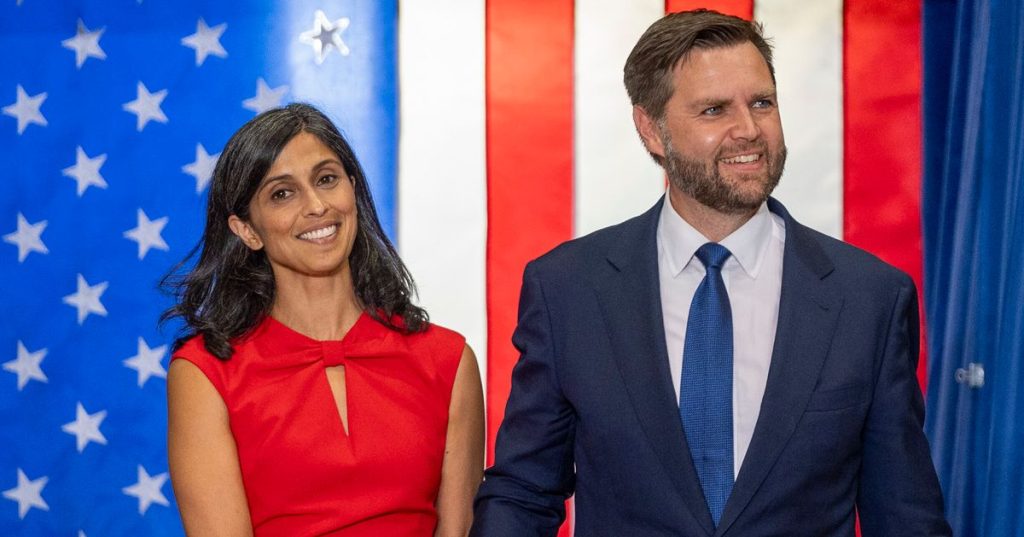Senator JD Vance of Ohio recently acknowledged, but did not condemn, the white supremacist attacks aimed at his wife, Usha Vance, due to her Indian descent. Vance expressed his love and pride for his wife, emphasizing her qualities as a mother and lawyer. He mentioned that his wife not being white has exposed him to the challenges faced by working families in America. These comments followed attacks by white supremacist Nick Fuentes, who questioned Vance’s support for white identity due to his relationship with his Indian wife and their child named Vivek.
Usha Vance is a lawyer and the child of Indian immigrants, and if the Trump-Vance ticket were to win in November, she could potentially become the first Indian American second lady. Critics on social media, including Democratic commentator Kaivan Shroff, questioned JD Vance’s response to the attacks on his wife, calling it “weird” and “pathetic.” Others highlighted the pattern of white supremacist hate being directed at Usha Vance and criticized JD Vance’s defense as inadequate, drawing comparisons to other politicians like Ted Cruz.
The attacks on Usha Vance by white supremacists have been met with outrage and concern, with many calling attention to the prevalence of hate speech and discrimination in society. Some criticized JD Vance for not directly condemning the attacks and for seemingly downplaying the significance of the situation. The public response to the issue highlighted the ongoing challenges faced by individuals and families of marginalized backgrounds, who experience discrimination and prejudice based on their race, ethnicity, or other personal characteristics.
The incident involving JD Vance’s wife has sparked a broader conversation about the persistence of racism and white supremacy in American society. Many individuals have called for greater accountability and action to address hate speech and discrimination, particularly when it affects public figures and their families. The response to the attacks on Usha Vance reflects a larger struggle against bigotry and prejudice, with calls for stronger condemnation of racist behavior and support for those who are targeted by hate groups.
As the controversy surrounding the attacks on Usha Vance continues to unfold, it serves as a reminder of the importance of standing against racism and bigotry in all its forms. The incident has prompted discussions about the role of public figures in confronting hate speech and discrimination, as well as the need for greater solidarity and support for individuals who are targeted for their identity. JD Vance’s response to the attacks on his wife has drawn criticism and calls for a more robust defense of her and a condemnation of the white supremacist rhetoric that seeks to dehumanize and marginalize individuals based on their background.
In conclusion, the incident involving Usha Vance and the white supremacist attacks on her have sparked a conversation about the ongoing challenges faced by marginalized communities in America. JD Vance’s response to the attacks has been met with criticism for failing to condemn the hate speech directed at his wife and for not taking a stronger stand against racism. The public reaction to the situation underscores the need for greater awareness and action to address discrimination and prejudice, and highlights the importance of solidarity and support for individuals facing bigotry and hatred.








